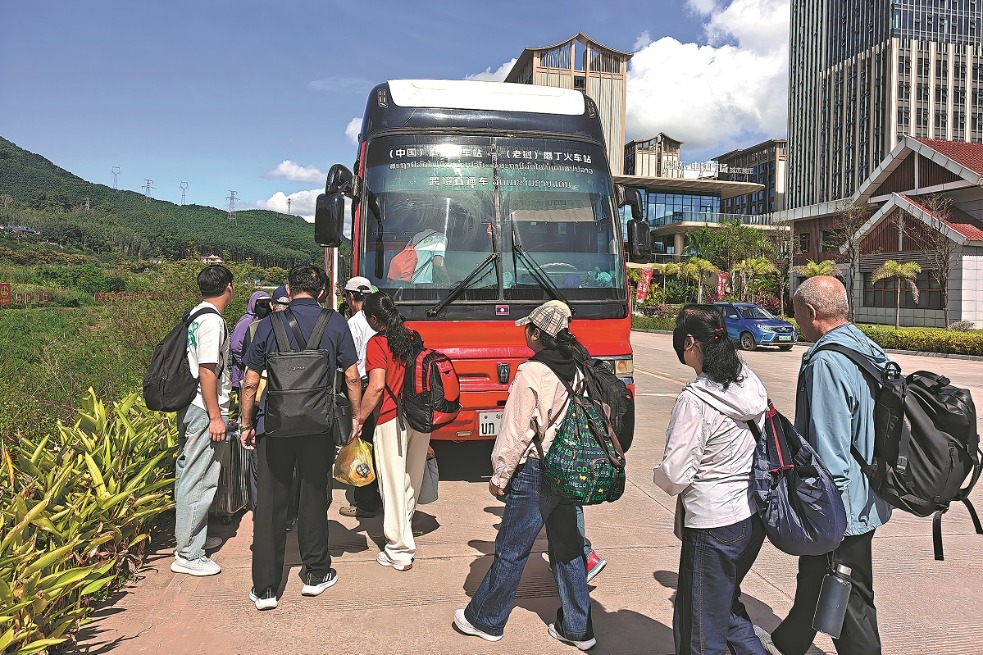When off-the-beaten-path destinations call, so does nature

China is saying it will boost investment in tourism, with plans to develop rust belt regions and upgrade public toilets high on its to-do list as it looks to lift the sector's contribution to economic growth.
Announcing a new plan for the sector, China said it aims to invest 2 trillion yuan ($290 billion) in tourism between 2016 and 2020, which would translate to annual growth of more than 14 percent in direct investment in the industry.
Old industrial and resource-dependent cities, particularly in the north of the country, will be encouraged to develop tourism, and the government has promised to set up "demonstration tourist bases" in those areas. Several depleted coal cities have already made efforts to turn defunct mines into parks.
The plan also promised a "toilet revolution", prompted by widespread complaints about toilet hygiene levels at China's tourist spots and said the country would aim to build or renovate as many as 100,000 public toilets over the period.
That's up from a 50,000-unit goal announced less than a year earlier, an effort that resulted in a promising 20,000 new units gotten up and running in a year.
The overall investment will help China's emerging tourism industry account for 12 percent of annual economic growth by 2020, up from 10.8 percent last year, the country's cabinet said, according to Reuters.
The total sum of tourism services purchased by the country is set to reach 7 trillion yuan ($1 trillion) by 2020, equivalent to more than an 11 percent increase in tourism revenue per year, the State Council said.
The government predicted domestic travelers would take 6.4 billion trips annually by 2020, up from 4 billion in 2015, while the number of trips to China by overseas travelers is set to rise to 150 million, from 134 million last year, Reuters said.
That's a lot of pit stops, and serves as a reminder of the global need for decent, dignified ways to answer nature's call that every human being deserves.
It's been five years since the Bill and Melinda Gates Foundation threw down the gauntlet to the world of high-tech, challenging innovators to rethink the toilet.
The foundation's 2011 Reinvent the Toilet Challenge's goal was to create breakthrough design toilets that "capture and process human waste without piped water, sewer or electrical connections and transform waste into useful resources, such as energy and water, at an affordable price".
At the time, it was estimated that 2.5 billion people worldwide lacked access to safe sanitation, causing serious health problems, including death. One billion had no access to toilets at all. Tainted food and water resulted in 1.5 million child deaths a year, many of which could have been prevented through proper sanitation and hygiene.
A team from Caltech took the $100,000 first prize with a solar-powered system that generated hydrogen and electricity. The $60,000 second-place prize went to Loughborough University in the UK for a device that produced biological charcoal, minerals and clean water.
The second-round winners included a system that removes water from human waste and vaporizes it, the remaining solids being used for fertilizer.
In August 2013, the foundation announced a $5 million grant to support a toilet challenge specifically for China. They called it "a testament to the research and development capabilities in China".
In the first round, in 2014, 34 projects were considered for sponsorship. The number was whittled down to four - a vacuum toilet; a membrane-permeation process to separate waste solids and liquids; bioelectrochemical technology; and solar power. The second-round projects, at last report, are still in the planning stages.
"Imagine what's possible," Bill Gates said, "if we continue to collaborate, stimulate new investment in this sector, and apply our ingenuity in the years ahead. Many of these innovations will not only revolutionize sanitation in the developing world, but also help transform our dependence on traditional flush toilets in wealthy nations."
Contact the writer at chrisdavis@chinadailyusa.com.
(China Daily USA 12/28/2016 page2)
Today's Top News
- Inclusivity critical for AI governance
- Massive response to latest bonds issue
- Control of precursor chemical exports tightened
- Xi greets Ouattara on reelection as Cote d'Ivoire president
- CIIE displays innovation, global confidence in China
- Nation set to sharpen focus on key sectors






























